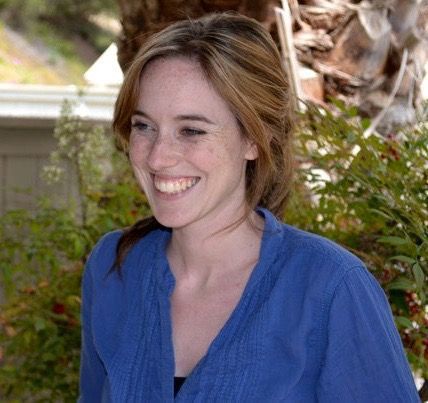If you’ve ever closed a finger in a car door, then you know. In an instant, you’re overwhelmed – not by the pain, but by surprise. In fact, you’re not even fully aware that it hurts in that moment. The pain ebbs in gradually, minute by minute until you find yourself cursing, stomping or deep-breathing just to take your mind away from it.
I’ve had worse injuries, but none so unexpected. When you’re riding a motorcycle over rough, tough terrain, there’s a bit of an expectation that something might go wrong. When you’re stepping out of your sister’s car, there’s little anticipation that your right index finger will be a casualty.
Yet there I was: finger badly injured. Coming from a family with a long tradition of tough-it-out medicine, I cleaned, bandaged and iced it, and spent the evening with my hand held up above my heart, index finger up in the “I’m number one” position. This is, as I said, a familial response. When my brother broke his foot riding on a Saturday morning of a three-day weekend, he simply kept his motorcycle boot on until the weekend was over. The snug boot was a cast of sorts, he argued. He wasn’t wrong, but he still managed to make the doctor gag when he removed it to reveal a very bruised, very swollen, very broken set of metatarsals the following week. The family list includes a cracked rib (but what can really be done there), another broken foot (just keep it moving), and a bruised shoulder (homemade sling). The worst may have been my husband’s broken foot: he dropped his motorcycle on it on a Monday and didn’t make it to the doctor for a full week. In his defense, he had thought it should be checked, but no one in the family believed it was really that bad. Just a bruise, we said. Walk it off. Turns out he had broken the largest bone in his foot, and spent the next six weeks in a cast.
So we are presented with two options. On the one hand, we acknowledge an injury’s severity and get professional medical help. On the other, we clean it, bandage it and move on.
But when to do which? I am not sure of the answer myself. In this instance, I did go to urgent care after a word of advice from my father: “Well, I probably wouldn’t go to the doctor,” he said, “So you’d be wise to do just that.”
Even though I wasn’t sure what motivated this departure from tradition, I went. I sat in the waiting room on a Saturday morning, then sat a bit longer in the doctor’s room. I answered each question (yes, I cleaned it, yes, it does still hurt; no, no known allergies). The hospital recorded my height, my weight and my blood pressure. I sat for a good forty minutes as the proper information-gathering procedure was followed. At last the doctor peeled the bandage off to take a look.
“Hmm,” she mused, poking and prodding my finger without a glance at my face. I imagined she was aware that it hurt, but had a limited amount of time to dedicate to the examination. “We’ll need an X-ray,” she concluded. “I can’t say for certain that it’s not broken, and that would require more care if you want this finger to function normally again.”
Her last statement caught me. Ever again? I looked at my finger and wiggled it slightly. Stiff and bruised, it wasn’t able to respond very much. I couldn’t imagine the next fifty years of my life lived with an inflexible index finger on my right hand. I agreed to the X-rays, and the doctor left me once more alone in the room.
Now I’ll skip to the happy ending: the finger was not broken. It is still healing (in fact, I am slowly tapping this out on the keyboard with my middle finger having taken its place). In hindsight, it may seem like a lot of concern for nothing – I could have been just fine with a Band-Aid. On that Saturday morning, however, I did not know that. Does that mean it was wrong of me to have gone to the doctor, knowing what I know now? As I said before, I’m not sure. What the experience did teach me, though, was that when I find myself in that position, I ought to ask. That may mean that I ask a parent, friend or coworker if they’ve ever been in a similar situation. That may mean that I ask a medical professional. Regardless, there is nothing lost in asking, and much to lose by ignoring. Be safe out there everyone, and watch out for quickly closing doors.
Suzanne Klein is from Boulder, Colorado, and has been exploring the Moab desert for more than a decade.



